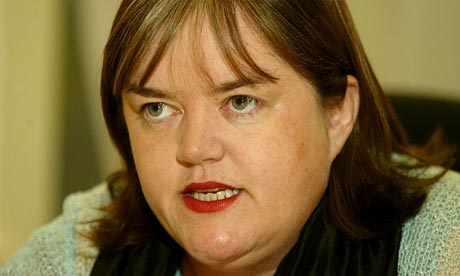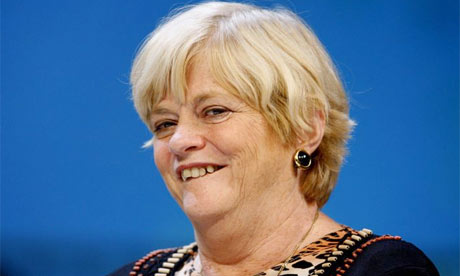Notes from the NOMS conference
By Frances CrookI spent two days at the NOMS conference, attended by around 300 prison governors, heads of probation, and this year also some people from the private sector. I have made some random notes of stuff I think might be of interest from speeches and workshops.
Michael Spurr is taking over as the Chief Executive of NOMS, when Phil Wheatley retires in June. In his keynote speech he said that the ending of early release would increase the prison population by 2,000 in two months. He said that the service had been over-assessing but under-working with offenders and the import of his comments implied that they want to return to individual engagement in addition to delivery of programmes. The reoffending rate for those serving 12 month prison sentences has gone up from 62% to 64%, but interestingly he said that open prisons and semi-open do seem to reduce reoffending even for short sentenced prisoners.
People who have more than 10 convictions are not doing well, they seem to be predominately people who started taking drugs in the 1980s and are prolific offenders to feed their habit, a habit they cannot kick.
Absconding from prison is down from 1,200 in 2003 to 380 in 2008. This is good news in that if a long termer absconds from an open prison they pretty much don’t have any choice but to revert to crime to survive outside, they can’t get a job as they would be picked up.
MAPPA appears to be delivering and further offences are down.
Phil Wheatley said that “there is no endemic brutality in any prison”.
Really importantly, Phil Wheatley reinforced the message that both prison and probation should concentrate on work with people rather than doing things to people.
Professor Fergus McNeill from Glasgow University was interesting. He said that change is difficult (anyone who has gone on a diet or tried to give up smoking should remember that) and we can’t just tell people to change, it has to be a process of desistance. His work has been to find out how people change and how they stay changed. Crime becomes part of people’s identity and they need to sign up to a new commitment to live well and conform to society’s rules, long term. Instant and complete cessation of crime is unlikely, but we can decelerate prevalence and severity and the public must recognise that this is a success and contributes to the common good. It is simplistic and erroneous to think that putting people through programmes will lead to change; what matters is relationships, community, social context, staff skills, and in amongst things can be programmes. We have to help people to find the law-abiding self inside them. They have to see that a life good for us is a life good for them. We need to allow people to make recompense and he suggested a ceremony or passing out parade that symbolises and embeds the change offering the chance of a different future, for the individual and for society.
I went to a workshop on the future of the DSPD programme (dangerous people with severe personality disorder) which works with people in custody who are assessed as presenting a high risk of harm to others. There have been four units, two in prisons and two in special hospitals, with controlled experiments working with those people identified as having personality disorder. The funding is going to be withdrawn from the NHS units at Rampton and Broadmoor, and focussed on the two prison units (around £50 million a year) although people may transfer out of prison to secure hospitals for treatment, they will still probably return to prison and the criminal justice system will be the main pathway. The people in the units require specialist treatment, and probably for life. Early identification was essential so that they can be supported by MAPPA on release. There are pilots running in a handful of local authorities to invest in specialist training for staff in approved premises to support people on release. It was reported to the workshop that their research showed that prison staff were more keen to work with PD prisoners and more skilled with them than nurses in the special hospitals.
And some really exciting developments on the Isle of Wight. The three prisons on the Isle of Wight (Parkhurst, Albany and Camp Hill) have been grouped under one governor, an inspirational one. The prisons have linked with Grendon to run experiments on citizenship development through a democratic process. The Isle of Wight prisons ran elections with the staff and prisoners being the electorate to form a consultative council. The prison made up four parties representing key areas of life inside the prison, such as training, resettlement, environment. People were chosen to campaign for their parties and the vote was apportioned to seats on the council – proportional representation. This was set up following a dreadful inspection on Parkhurst, admitted to be one of the worst reports ever done by the inspectorate. Fundamental change had to happen, and not just in making the prisons cleaner, but finding a different way of working. The leaders of the four parties were invited to address a full staff meeting, and only six walked out – at that moment Parkhurst changed, according to the governor. In the end, half the staff did vote. At the same time as introducing a process of democracy, they have had a zero tolerance policy towards anti-social behaviour by prisoners and have been more explicit about supporting staff to “line manage” prisoners. The drama of the election got all three prisons engaged. The team presenting at the seminar said they saw it as “beyond decency” because the introduction of the decency agenda had concentrated on orderliness and safety, whereas the next step in prisons is to develop staff skills and engage prisoners in a democratic process to ready them for release.
Finally. There are big changes going on at the top. As well as Michael Spurr taking over at NOMS, Anne Owers is leaving the inspectorate and will be replaced by Nick Hardwick, and Stephen Shaw is leaving as Ombudsman – but recruiting a replacement for his post has been delayed until after the election which will mean months without a stable head of a critically important government office.

















































